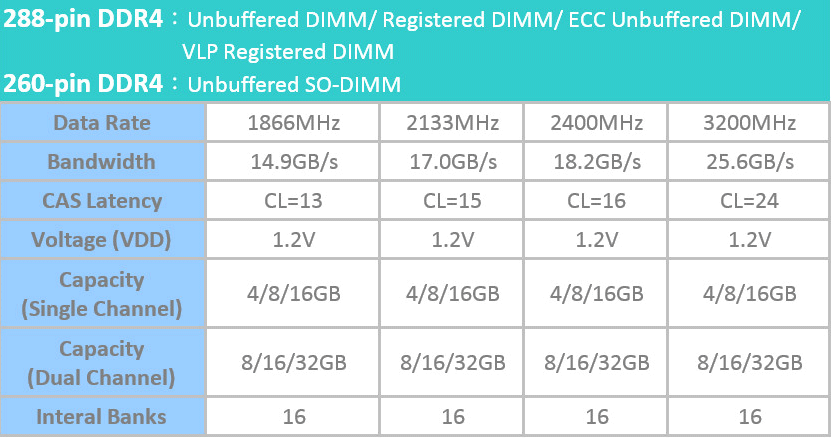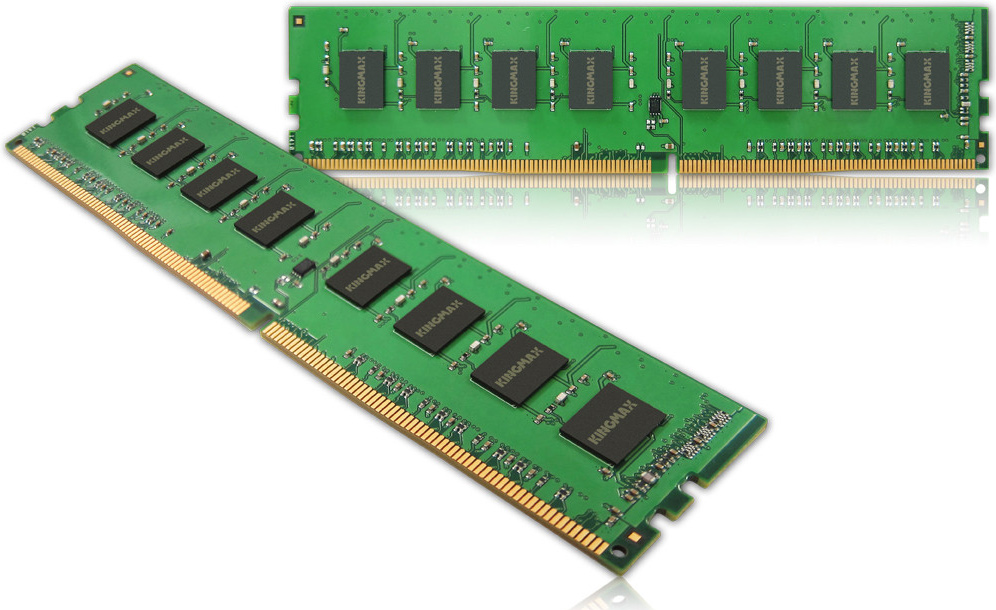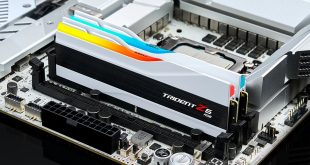Kingmax, a well-known supplier of premium memory modules, on Thursday introduced its first DDR4 memory solutions with up to 3.20GHz effective clock-rate and also said that the adoption of DDR4 will rise in 2015.
The family of Kingmax's DDR4 memory modules includes (or will eventually include) 288-pin DDR4 unbuffered DIMMs, registered DIMMs, ECC unbuffered DIMMs, VLP registered DIMMs as well as 260-pin DDR4 unbuffered SO-DIMMs. The lineup of Kingmax’s DDR4 memory modules include 4GB, 8GB and even 16GB versions. The DDR4 memory solutions from Kingmax are rated to work at 1866MHz, 2133MHz, 2400MHz as well as 3200MHz.
At present DDR4 memory modules are used only by systems running Core i7-5800/5900-series “Haswell-E” high-end desktop microprocessors as well as Intel Xeon E5 v3 “Haswell-EP” server processors. Neither of the chips are expected to have truly high market share given their price, positioning and some other factors. Nonetheless, Kingmax expects the popularity of DDR4 to increase “spectacularly” in 2015.
“With the launch of Intel's Haswell-E processor platform, which supports DDR4, it is believed that computer products with DDR4 will gradually appear in the market, triggering a rapid increase in a spectacular rise in usage of DDR4 in 2015,” a statement by Kingmax published by TechPowerUp reads.
In order to make DDR4 popular, Intel needs to release mainstream central processing units that support it. The first mainstream product line to support DDR4 will be the code-named Skylake processors for desktops and notebooks due in 2015. Officially, Intel claims that the Skylake products are only due in late 2015, which means that the amount of DDR4-supporting CPUs will be pretty low in 2015. However, there are unofficial reports claiming that the Skylake chips will arrive already in mid-2015. If the unofficial claims are accurate, then Kingmax has reasons to believe that adoption of the DDR4 technology will get significant next year. Unfortunately, it is expected that at least some Intel 100-series (Skylake-based) platforms will support DDR3 memory as well, which lowers chances of DDR4.
Intel did not comment on the news-story.
Discuss on our Facebook page, HERE.
KitGuru Says: If Kingmax is right and the Skylake-based platforms will be adopted widely in 2015 (in order to make this happen, Intel will need to launch them at Computex in mid-2015), it means that the Broadwell processors will live a very short life.
 KitGuru KitGuru.net – Tech News | Hardware News | Hardware Reviews | IOS | Mobile | Gaming | Graphics Cards
KitGuru KitGuru.net – Tech News | Hardware News | Hardware Reviews | IOS | Mobile | Gaming | Graphics Cards




